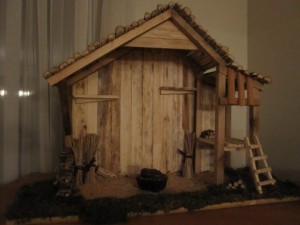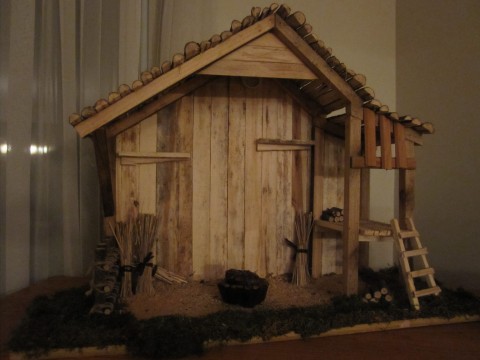I’ve always had a weak spot for palindromes. When I learned the word from Mrs. Strukel in fourth grade, I became a little obsessed. I’d sit at my desk daydreaming up all the palindromes I could think of (mom, dad, race car, taco cat), and I’d secretly get a little giddy whenever the digital clock hit a magical number like 12:21.
My love for these quirky words hasn’t abated much over the years. I was ridiculously excited about my 33rd birthday, because after all, palindromic birthdays come only once each decade. I made it a point to ride in my Civic and a Toyota that day, and although I didn’t add random people named Hannah or Bob to my guest list, I will admit the thought crossed my mind.
It never occurred to me until recently, however, that God was a fan of palindromes. Then I read this quote by Eugene Peterson:
The way we come to God is the same way that God comes to us. God comes to us in Jesus; we come to God in Jesus.
Eugene Peterson, The Jesus Way
Do you see the palindrome there? Us-Jesus-God. God-Jesus-us.
In the Old Testament, people longed to see God face to face. But Scripture was clear: a mortal could not look at a holy God and expect to live (Genesis 32:30). The esteemed prophet Moses saw God’s presence pass by, but even he wasn’t allowed to see God’s face (Exodus 33:20-22).
Yet in his radical grace, God didn’t leave us alone and wishing for connection with him. Instead, he sent us a divine palindrome: Jesus, who mediates between us and the Father. Jesus, who enables us to see the Father’s face and not die. Jesus, who takes on our sin so we can stand in the presence of perfection. Jesus, who intercedes on our behalf before a holy God.
We have access to a gift the ancients longed for but did not see.
I tell you the truth, many prophets and righteous people longed to see what you see, but they didn’t see it. And they longed to hear what you hear, but they didn’t hear it.
Matthew 13:17
So we dare not miss this rare gift—this divine palindrome that allows us to come into the presence of Love himself.
***
What’s your favorite palindrome? Please share so I can add it to my collection!








